Why We Look into Learning Data Analysis
In the age of information, data surrounds us—shaped in numbers, patterns, and stories. Learning data analysis, then, is not just a task. It’s like gaining a lens that helps us focus on what lies within the noise. We can look through the uncertainty and begin to understand what drives outcomes in business, science, and life.
For some of us, it’s a professional edge. For others, a way to explore ideas. In both cases, it sharpens our thinking. It moves us from assumptions to insight. It allows us to act based on what is known, rather than what is guessed.
We often debate: should we lean on numbers (quantitative) or meanings (qualitative)? In truth, both offer value. Where one provides precision, the other brings depth. When we analyze data, we’re not only measuring—it’s also about interpretation. The real power comes when we look into both, reflect, and build a more complete understanding.
Data analysis helps in recognizing patterns, improving systems, and solving problems. For a student, it builds research integrity. For a team, it streamlines effort. For all of us, it improves decisions—whether about finances, health, or performance. And it becomes a bridge into deeper areas, like AI and machine learning.
📊 Looking at Business Intelligence: From Data to Direction
We can think of Business Intelligence (BI) as a way of turning scattered information into something we can act on. It is not just about gathering data—it’s about drawing insight from it.
BI helps us look at what happened, why it happened, and what might happen next. We bring data together—from tools like CRMs, ERP systems, or online platforms—and connect it into one structure. From there, we begin to ask: what does this tell us?
With BI platforms like Power BI or Tableau, we see visuals that speak more clearly than spreadsheets. Dashboards, charts, and reports offer us a quick look at performance, progress, and pressure points. For decision-makers, it’s not about more data—but better understanding.
Still, there’s a question: are we over-relying on automation in BI? Or is it empowering us to think better? Again, we find strength in reflection. BI should not replace thinking—but support it. Let it show patterns, so we can ask better questions.
🔬 What Data Science Offers Us—and Why It Matters
In our search for meaning within complexity, data science stands as a path forward. It brings together programming, math, and subject knowledge. But more than that, it offers a way of thinking. A method. A practice.
We don’t just feed machines data. We ask: what are we trying to uncover? Is it about forecasting sales? Or recognizing fraud? Data science starts in the question. It continues in the search.
We clean, explore, and model the data. We use tools—Python, SQL, Jupyter—not just to compute, but to reveal structure. This process is iterative. We build a model, test it, reflect, and revise. We are not looking for “the answer,” but for insight that stands up to scrutiny.
It’s also important to ask: how much do we depend on quantitative methods? Should we include more context and qualitative reflection? As we grow in the field, we see that integration—numbers with narratives—is often what gives strength to findings.
🧭 A Way to Use Data Science—Step by Step
We begin with curiosity. That’s our guide. The issue must be clear: what are we solving?
We then gather data—from APIs, surveys, public sets, or internal systems. That data comes messy. So, we clean it. We handle gaps, fix errors, and prepare it for thought. We look for patterns. Outliers. Connections.
With this knowledge, we can build. Regression for trends. Classification for decisions. But models are only useful if they hold up. So, we test them. We check accuracy, examine errors, and keep refining. Deployment brings the result into the real world—via dashboards or apps.
This journey—of analysis into action—is where data science moves from theory to use. But along the way, we must keep asking: what does the model miss? Are there voices not in the data? That reflection makes the science more human.
🤖 On Artificial Intelligence: What It Is and What It Can Become
Artificial Intelligence (AI) is where we try to build systems that learn, see, speak, and decide. It’s not just machines doing work—it’s machines interpreting the world.
We find AI in everyday tools—recommendations, assistants, diagnostics. Behind it are fields like machine learning, NLP, and vision systems. AI looks into huge volumes of data to spot patterns no human could detect alone.
Yet, the issue isn’t just about what AI can do. It’s about what it should do. Bias, privacy, and fairness are not side points. They sit at the center. As a scholarly community, we must ask: are our models transparent? Are they fair? Do they reflect the world—or just the data?
AI holds promise, but also risk. The power is in us—to shape it wisely.
🛡️ The Ethics and Rules of Our Work with Data
With data, we must act with care. The frameworks—GDPR, HIPAA, FERPA—exist not just to limit us, but to remind us of responsibility. Consent matters. Privacy matters. So does accuracy.
Yet legal compliance is just the beginning. Ethics goes further. We must look at who is impacted, who is excluded, and who decides what data means. In AI and data science, transparency and fairness must be part of the design.
Professional guidelines—from ACM, IEEE, and others—offer structure. But we also need reflection. What kind of data culture are we building? Are we empowering or exploiting? These are not simple questions, but they are necessary ones.
📈 In the End: Why We Should All Learn to Work with Data
Whether we are leading a company, studying in a classroom, or just trying to understand the world—we all stand in a flow of data. And so, knowing how to read, analyze, and think with data is not just useful. It’s essential.
This isn’t about learning a tool. It’s about joining a way of thinking. We are invited to look into the systems around us and reason through what they show.
So let’s keep asking. Keep looking. Keep learning. Because the data is not just in the numbers—it’s in us, in the questions we ask, and in the future we help shape.
In the Race of Careers, Every Second Counts
Today, a resume gets just 6 seconds of attention.
That’s fast. But not final.
We help you craft a custom, ATS-friendly resume that speaks for you—clearly and confidently.
All for just ₹599. Built with you, not just for you.
🔗 www.crazeneurons.com
📲 WhatsApp Support
In the World of Data, Every Insight Matters
Data is more than numbers. It helps us look into problems and ask why.
Quantitative shows what is happening.
Qualitative helps us understand why it’s happening.
We need both—to see the whole picture.
Join our Data Analysis Training. Now at 50% off.
🔗 www.crazeneurons.com
📲 WhatsApp Us: https://wa.me/918368195998
❓ Frequently Asked Questions
Q: What background is needed?
A: None. This program starts from scratch. We grow together.
Q: Is the resume generic?
A: No. Each one is written from zero. Built on your real strengths.
Q: Do I get real-world experience?
A: Yes. Projects are practical. Internships are available for eligible learners.
Q: Can I see learner feedback?
A: Absolutely. Visit our website www.crazeneurons.com to explore testimonials and feedback from our students.
Q: Why Choose Craze Neurons?
A: At Craze Neurons, we don’t just teach—we build futures. Our expert-led courses in Python, Data Science, AI, and more are designed for hands-on learning. You don’t just gain knowledge—you apply it through live projects, hackathons, and real-world case studies. From crafting AI models to developing websites and web scraping projects, we empower learners to build and innovate with purpose.
What sets us apart is our focus on holistic career development. We support you at every step—with resume building, internship assistance, and interview training. Whether you’re starting out or upskilling, we’re here to help you grow in the evolving world of tech.
🔗 Stay Connected
🌐 Website: www.crazeneurons.com
📢 Telegram: https://t.me/cenjob
📸 Instagram: https://www.instagram.com/crazeneurons
💼 LinkedIn: https://www.linkedin.com/company/crazeneurons
▶️ YouTube:https://www.youtube.com/@CrazeNeurons
📲 WhatsApp: +91 83681 95998


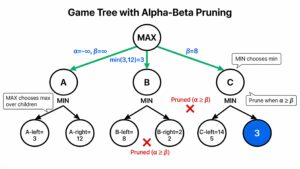
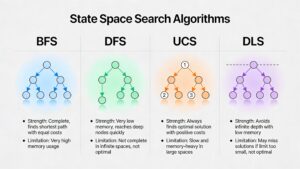
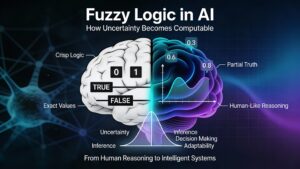
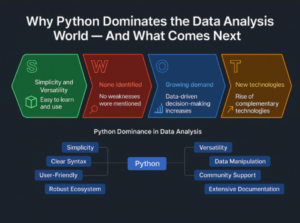
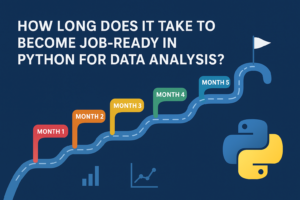
One Response
Informative content